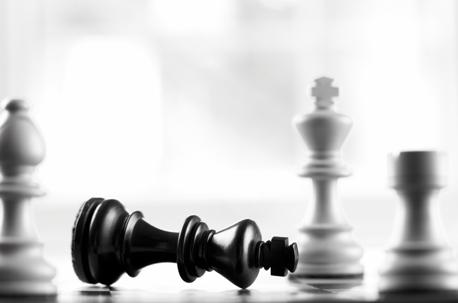NEWS30 June 2014
All MRS websites use cookies to help us improve our services. Any data collected is anonymised. If you continue using this site without accepting cookies you may experience some performance issues. Read about our cookies here.
NEWS30 June 2014
US — The concept that performers can reach elite status through 10,000 hours of practice rather than innate talent, championed by Swedish psychologist K. Anders Ericsson, is challenged in a new study.

The research was led by David Hambrick and looked at studies of chess players that provided information on people’s highest ability level achieved along with their history of practice. They found that between 2005 and 2012 six studies had been done, involving more than 1000 players internationally in total.
On average, the amount of deliberate practice accounted for 34% of variance in chess ability, which although an impressive proportion, was insufficient to explain why some players achieved greatness and others didn’t. And there was a huge range in the deliberate practice completed by players of different standards. One study, looking purely at grandmasters found the range of practice they’d invested was between 832 and 24,284 hours. Looking at players who achieved only intermediate level, 13% of them had completed more practice than the average amount invested by the grandmasters.
Hambrick and his team did a similar analysis of past studies looking at elite musicians, the majority of which were pianists. Based on eight past papers, they found deliberate practice accounted for 30% of the variance in music performance, as measured by formal tests, expert ratings and rankings. Once again the evidence pointed to a wide variation in the amount of practice completed by different musicians.
“We found that deliberate practice does not account for all, nearly all, or even most variance in [elite music or chess] performance,” wrote the researchers. It appears that some people failed to achieve the highest level, even after completing more than 10,000 hours of practice while others achieved this level with more modest practice levels.
The researchers said that another critical factor to success was the age at which people began; this remained a predictive factor even after subtracting the influence of practice. “There may be a critical period for acquiring complex skills,” the researchers said.
Other relevant factors include intelligence and working memory capacity; personality and genes.
1 Comment
Marshall
10 years ago
Hambrick and Meinz neglected to answer the results of the huge and famous experiment conducted by Lazlo Polgar on his three daughters. Susan became the Women's World Chess Champion. Judit was ranked in the top 10 for all grandmasters, a female alone in a male domain. Sophia "only" became a chess master but not a grandmaster, and she defeated some great players including Viktor Korchnoi who was earlier the second best player in the world. Lazlo Polgar decided when his first daugher was very young that all his children would become great chess players; and he was deliberately proving a point - a point that contradicts Hambrick and Meinz conclusion. Polgar proved that genetics is Not where genius level experise in a subject comes from, rather it comes from psychological forces that he partly manipulated. Hambrick and Meinz contradict Polgar's result by claiming that inhereted genetics plays the majority role. Either Polgar or Hambrick is wrong. Polgar has better data on his side.
Like Reply Report